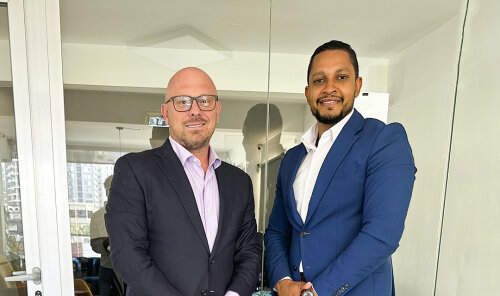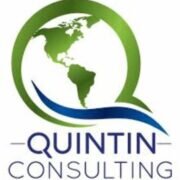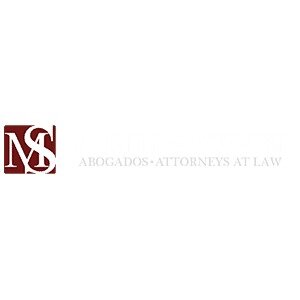Best Government Relations & Lobbying Lawyers in Dominican Republic
Share your needs with us, get contacted by law firms.
Free. Takes 2 min.
Or refine your search by selecting a city:
List of the best lawyers in Dominican Republic
About Government Relations & Lobbying Law in Dominican Republic
Government Relations and Lobbying in the Dominican Republic involve interacting, influencing, and negotiating with governmental entities to achieve specific legislative or regulatory outcomes. The practice serves as a bridge between private interests and governmental institutions, aiming to influence public policy, legislation, and decision-making processes. The legal framework governing this field is designed to ensure transparency, accountability, and ethical practices in how private entities and lobbyists engage with public officials and institutions.
Why You May Need a Lawyer
Engaging in Government Relations and Lobbying within the Dominican Republic can be complex due to regulatory requirements, legal implications, and the need for strategic communication with government entities. Here are common situations where legal assistance might be necessary:
- Ensuring compliance with local laws and ethical standards when lobbying.
- Developing and implementing government relations strategies.
- Negotiating contracts or agreements with governmental bodies.
- Handling disputes or litigation involving public policy matters.
- Advising on transparency and disclosure requirements in lobbying activities.
Local Laws Overview
In the Dominican Republic, the legal framework for Government Relations and Lobbying is designed to promote transparent and ethical engagement with public entities. Key aspects include:
- Regulations that require disclosure of lobbying activities and financial transactions.
- Codes of conduct that establish the ethical boundaries for interacting with government officials.
- Laws that prohibit conflicts of interest and corruption in lobbying practices.
- Requirements for registration of lobbyists and government relations firms.
- Penalties for the violation of lobbying regulations, including fines and disqualification.
Frequently Asked Questions
What is the role of a lobbyist in the Dominican Republic?
A lobbyist's role involves advocating for specific legislation, policy changes, or government decisions on behalf of a client or an organization by building relationships and effectively communicating with government officials.
Is lobbying legal in the Dominican Republic?
Yes, lobbying is legal in the Dominican Republic as long as it adheres to the established legal and ethical guidelines that promote transparency and prevent corruption.
Do I need to register as a lobbyist in the Dominican Republic?
Yes, individuals or organizations engaging in lobbying activities are typically required to register with appropriate government authorities and disclose their activities to ensure transparency.
What information must be disclosed in lobbying activities?
Lobbyists are generally required to disclose their clients, the issues they are lobbying on, any financial transactions related to their lobbying efforts, and any gifts or benefits provided to government officials.
How can a government relations lawyer help my business?
A government relations lawyer can help navigate the complex legal environment, ensure compliance with laws and regulations, develop strategies for effective lobbying, and provide defense in case of legal disputes.
What are the possible penalties for violating lobbying laws?
Penalties for violating lobbying laws in the Dominican Republic can include fines, disqualification from future lobbying activities, and potential legal action for more severe infractions.
How do lobbying and bribing differ?
Lobbying is a legal process aimed at influencing public policy through transparent and ethical means, while bribing involves offering money or gifts to obtain illicit advantages and is illegal.
Can foreign entities engage in lobbying in the Dominican Republic?
Yes, foreign entities can engage in lobbying, but they must comply with the same legal and ethical standards as domestic lobbyists, including registration and disclosure requirements.
How does lobbying impact public policy?
Lobbying can significantly impact public policy by providing decision-makers with information, expertise, and diverse perspectives, which can lead to more informed and balanced legislative outcomes.
What are the ethical guidelines for lobbyists?
Ethical guidelines for lobbyists typically include transparency, honesty in communication, respect for the decision-making process, and avoidance of conflicts of interest or undue influence on government officials.
Additional Resources
For those seeking guidance or information on Government Relations and Lobbying in the Dominican Republic, consider these resources and organizations:
- Office of the Comptroller General - Oversees compliance with financial disclosure and anti-corruption regulations.
- Ministry of Public Administration - Provides guidelines and codes of conduct for engaging with public institutions.
- Local Bar Associations - Offer legal advice and expertise for navigating governmental relations law.
- Chamber of Commerce - Offers networking and lobbying resources that connect the corporate sector with policymakers.
Next Steps
If you require legal assistance in Government Relations & Lobbying, consider the following steps to find the right support:
- Consult with a specialized government relations attorney to discuss your specific needs and legal requirements.
- Research law firms with a strong track record in government relations and a deep understanding of the Dominican legal landscape.
- Engage with professional organizations or chambers to find referrals and recommendations for qualified legal experts.
- Stay informed about changes in lobbying laws and regulations by subscribing to industry publications and alerts.
By understanding the legal landscape and utilizing available resources, individuals and organizations can engage effectively and ethically in Government Relations & Lobbying within the Dominican Republic.
Lawzana helps you find the best lawyers and law firms in Dominican Republic through a curated and pre-screened list of qualified legal professionals. Our platform offers rankings and detailed profiles of attorneys and law firms, allowing you to compare based on practice areas, including Government Relations & Lobbying, experience, and client feedback.
Each profile includes a description of the firm's areas of practice, client reviews, team members and partners, year of establishment, spoken languages, office locations, contact information, social media presence, and any published articles or resources. Most firms on our platform speak English and are experienced in both local and international legal matters.
Get a quote from top-rated law firms in Dominican Republic — quickly, securely, and without unnecessary hassle.
Disclaimer:
The information provided on this page is for general informational purposes only and does not constitute legal advice. While we strive to ensure the accuracy and relevance of the content, legal information may change over time, and interpretations of the law can vary. You should always consult with a qualified legal professional for advice specific to your situation.
We disclaim all liability for actions taken or not taken based on the content of this page. If you believe any information is incorrect or outdated, please contact us, and we will review and update it where appropriate.
Browse government relations & lobbying law firms by city in Dominican Republic
Refine your search by selecting a city.
















